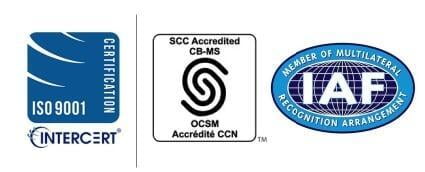Introduction to NCFE Foundational Stage
We at NCFE believe in adhering to a curriculum framework that is consistent with the vision of the National Education Policy. The vision of the National Education Policy 2020 is to change the education system in order to contribute to an equitable and vibrant knowledge society by providing High-quality education to all. Preschool education envisions promoting universal, equitable, joyful, inclusive, and context - specific learning opportunities to ensure the holistic development of all children aged 3-8.
Revolution is a much- needed impetus for the growth of the human society. The latest revolution in the system of Indian Education has come with the origin of National Education Policy 2020. It is well suited to bolstering our education system and transforming India into a global education hub.
I think it is about time that schools across the country embrace the digital aspect of learning and use it to optimize the in-class and at home
learning experience. The schools will have to shift their focus from syllabus completion to defining learning goals of each lesson and link assessments to these.
Vision in Achieving
Implementing Foundational Stage
The Practice Principles are based on the Early Years Learning Framework's pedagogy, which is the best and most comprehensive approach to supporting children's learning, development, and well-being. This programme recognizes that all children develop at different rates and ensures that each child develops to their full potential physically, socially, emotionally, morally, and intellectually. We make certain that important learning areas are covered, as well as that all of the young child's developmental needs are met.
Knowledge is a path, let's create together!
Knowledge is a path, let's create together!
Know more about Admission Process
Know more about Admission Process
Learnings in this Programme
Improves Participation
Retention of knowledge
Boosts performance at work
Develops problem-solving skills
Fosters collaborative learning
Makes learning more fun
Curriculum Framework
Curriculum Framework
The ECCE curriculum framework contributes to children's long-term development and learning by providing a facilitating, enabling, and stimulating environment in these early stages of lifelong learning. We designed our curriculum and pedagogies in a- playful manner Method based on activity and discovery Children's social skills and cooperation development Optimal development for all children in their early years.
Approaches to NCFE Foundational Stage
Approaches to NCFE Foundational Stage
Through an integrated and play - based approach that focuses on the development of life skills, the curriculum addresses the following interrelated domains: cognitive (thinking), affective (emotions or feelings), and psychomotor (physical or kinesthetic). Thus, our teaching approaches take a play and activity -based approach, with learning processes based on the children's needs, interests, abilities, and social context. Language is learned in the following order, according to developmental pedagogy:
'listen–speak–read–write.'
The emphasis in the early years is on listening and speaking as the primary activities in the classroom, which are facilitated through free play with peers and lay the groundwork for the development of reading, writing, and number work. Keeping the aforementioned perspectives in mind, early childhood curriculum is defined as an organized framework that includes well-planned and developed teaching approaches for the Foundational Stage.










